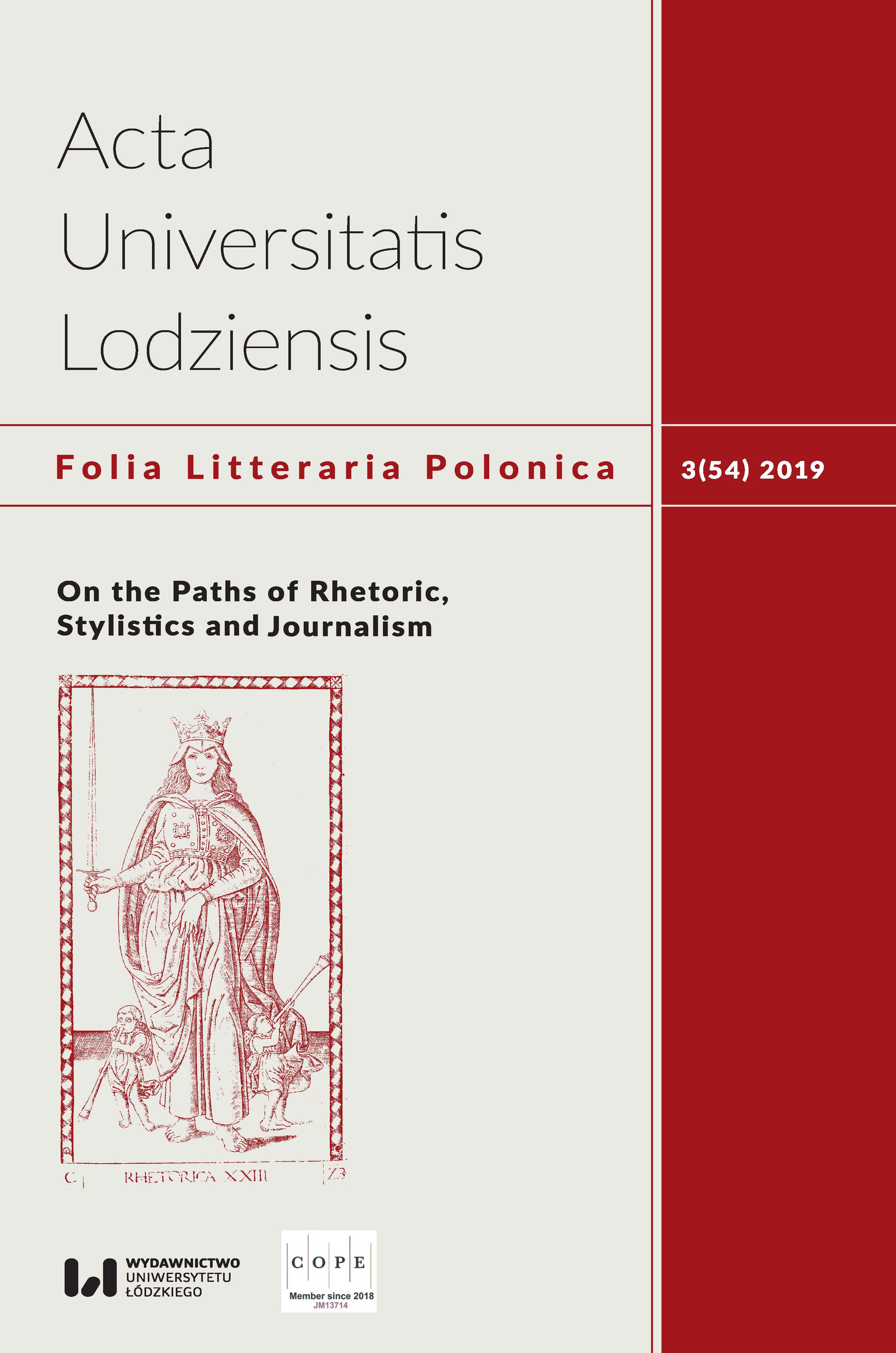Karol Wojtyła’s Philosophy on the Issue of Modernity
DOI:
https://doi.org/10.18778/1505-9057.54.10Keywords:
personalism, modernism, awareness, subjectivity, freedom, conscienceAbstract
Karol Wojtyła’s anthropology is characterised by a synthesis of objectivity and subjectivity, and his combination of aletheic and agapic notions. By accepting the modern anthropological turn, on the one hand, he attempted in his works a synthesis of the classic philosophy of being with the philosophy of awareness, and, on the other, he strived to correct the extreme anthropocentrism of modern thought. The author of the article analysed the relationship between Wojtyła’s concept of awareness and subjectivity with the personalistic style of John Paul II’s ministry of “man as the basic path of the Church.” The other pillar of the analysis is the question about the meaning of human freedom. In Wojtyła’s thought and in the teachings of John Paul II, any discussion of freedom as the basic property of a personal being was combined with a reflection on its ethical dimension.
Downloads
References
Adornato F., “Karol Wojtyła: jedyny (ostatni?) filozof moralista naszego czasu”, trans. A. Wierzbicki, Ethos 2002, issue 3–4(59–60), pp. 40–53.
Google Scholar
Buttiglione R., Myśl Karola Wojtyły, trans. J. Merecki SDS, Instytut Jana Pawła II KUL, Lublin 2010, pp. 82–93.
Google Scholar
Gałkowski J.W., Szkice o filozofii Karola Wojtyły, Instytut Jana Pawła II, Wydawnictwo Academicon, Lublin 2017, pp. 23–40.
Google Scholar
John Paul II, Pamięć i tożsamość, Wydawnictwo Znak, Kraków 2005.
Google Scholar
John Paul II, Redemptor hominis, 10, [in:] Encykliki Ojca Świętego Jana Pawła II, Wydawnictwo Św. Stanisława B.M. Archidiecezji Krakowskiej, Kraków 1996.
Google Scholar
Merecki J., “Podmiotowość i transendencja. Świadomość w filozofii Karola Wojtyły i Jana Pawła II teologii ciała”, Ethos 2013, issue 1(101), pp. 95–104.
Google Scholar
Półtawski A., Po co filozofować? Ingarden – Wojtyła – skąd i dokąd?, Oficyna Naukowa, Warszawa 2011, pp. 237–257.
Google Scholar
Seifert J., Karol “Cardinal Wojtyła (Pope John Paul II) As Philosopher and The Cracow/Lublin School Of Philosophy”, Aletheia. An International Journal of Philosophy 1981, vol. 2, pp. 130–199.
Google Scholar
Skrzypczak R., Karol Wojtyła na Soborze Watykańskim II. Zbiór wystąpień, Centrum Myśli Jana Pawła II, Warszawa 2011.
Google Scholar
Styczeń T. SDS, “Być sobą to przekraczać siebie”, [in:] T. Styczeń SDS, Świadek prawdy. O świętym Janie Pawle II – Uczeń, Dzieła Zebrane, A.M. Wierzbicki (ed.), Towarzystwo Naukowe KUL, Lublin 2015, vol. 6.
Google Scholar
Styczeń T. SDS, “Etyka jako antropologia normatywna”, [in:] T. Styczeń SDS, Wolność w prawdzie. Dzieła zebrane, A.M. Wierzbicki (ed.), Towarzystwo Naukowe KUL, Lublin 2013, vol. 4.
Google Scholar
Taylor Ch., A Secular Age, The Belknap Press of Harvard University Press, Cambridge MA 2007.
Google Scholar
Weigel G., “John Paul II as Defensor Hominis – Christian Humanism and the Gods that failed”, [in:] Servo Veritatis. Materiały Międzynarodowej Konferencji dla uczczenia 25-lecia pontyfikatu Jego Świątobliwości Jana Pawła II. Uniwersytet Jagielloński 9-11 października 2003 r., Wydawnictwo Naukowe PAT, Kraków 2003, pp. 405–415.
Google Scholar
Wierzbicki A.M., Filozofia a totalitaryzm. Augusta Del Nocego interpretacja moderny, Wydawnictwo Katolickiego Uniwersytetu Lubelskiego, Lublin 2005.
Google Scholar
Wojtyła K., “O humanizmie św. Jana od Krzyża”, [in:] K. Wojtyła, Świętego Jana od Krzyża nauka o wierze, Towarzystwo Naukowe KUL, Lublin 2000, pp. 233–243.
Google Scholar
Wojtyła K., Osoba i czyn oraz inne studia antropologiczne, Wydawnictwo Towarzystwa Naukowego KUL, Lublin 1994.
Google Scholar
Wojtyła K., “Osoba: podmiot i wspólnota”, [in:] Osoba i czyn oraz inne studia antropologiczne, Wydawnictwo Towarzystwa Naukowego KUL, Lublin 1994, pp. 373–414.
Google Scholar
Wojtyła K., “Podmiotowość i to, co nieredukowalne w człowieku”, [in:] Osoba i czyn oraz inne studia antropologiczne, Wydawnictwo Towarzystwa Naukowego KUL, Lublin 1994, pp. 435–443.
Google Scholar
Downloads
Published
How to Cite
Issue
Section
License

This work is licensed under a Creative Commons Attribution-NonCommercial-NoDerivatives 4.0 International License.











